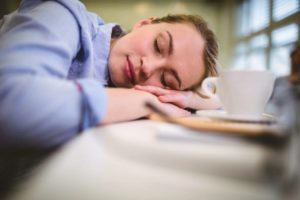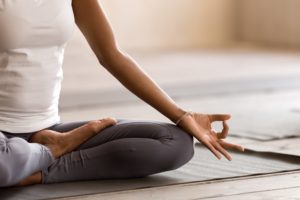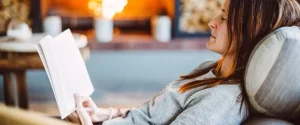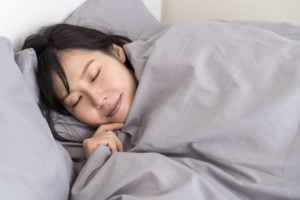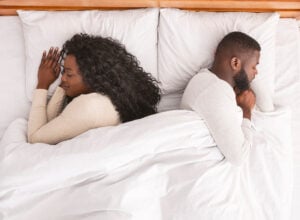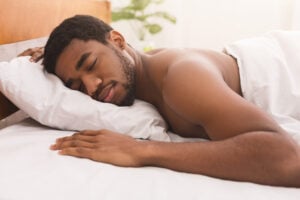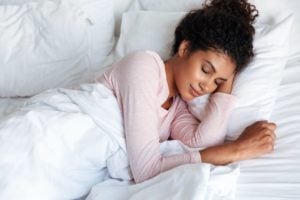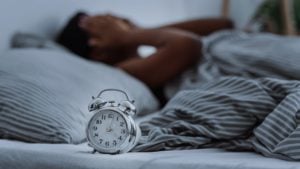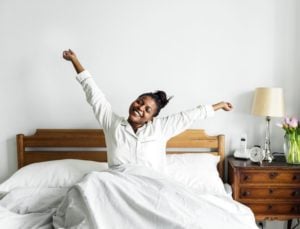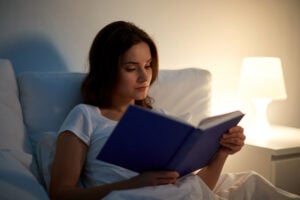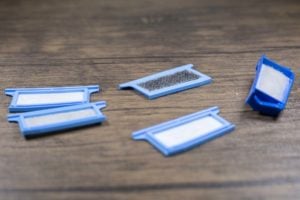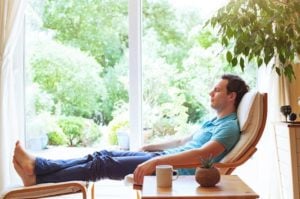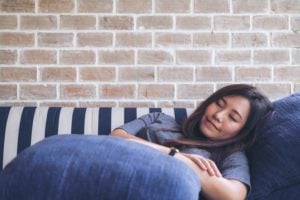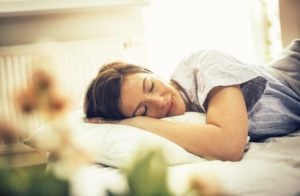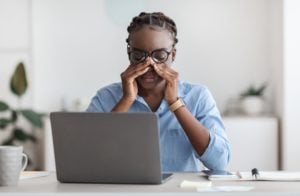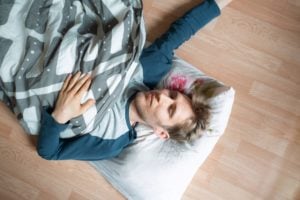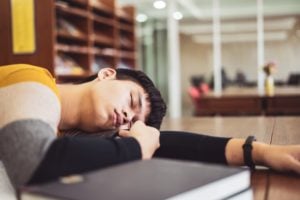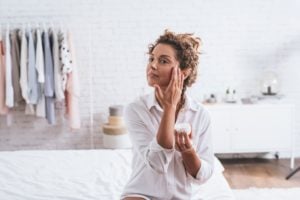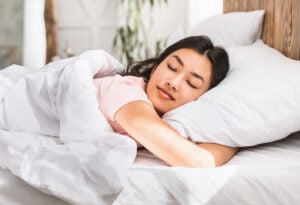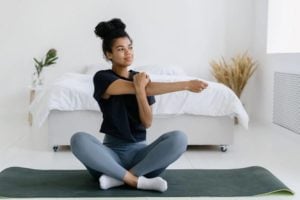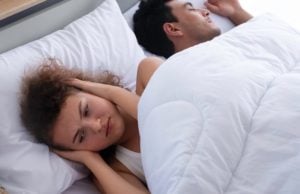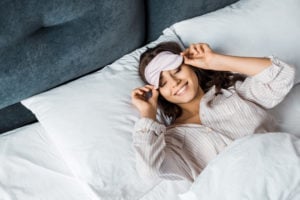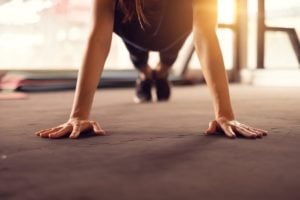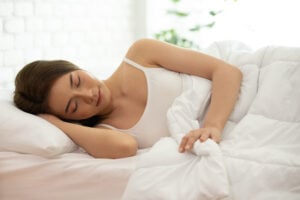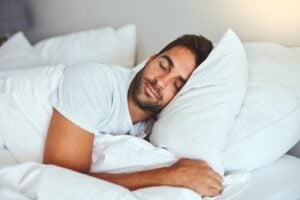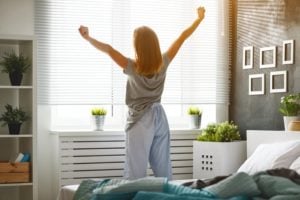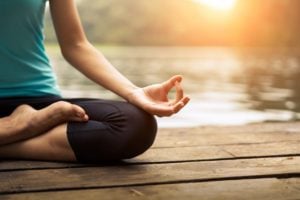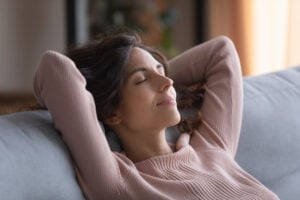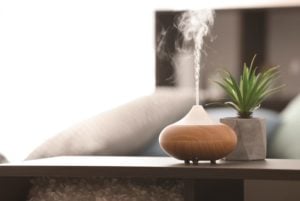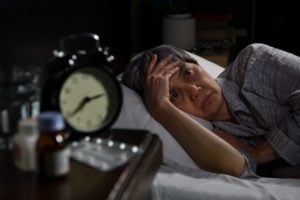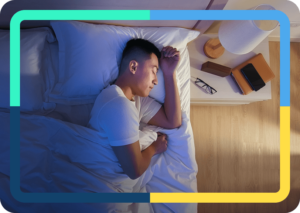How to Get Rid of Groggy Feelings After a Nap
It is not unusual to feel groggy, drowsy, or in a bad mood after waking up from a nap. Napping can be a helpful way to reduce fatigue and feel more awake during the day, but lingering feelings of grogginess make some people hesitant to take a midday rest. Fortunately, there are several ways to get rid of grogginess and feel more alert after napping.
How to Prevent Grogginess After a Nap
Grogginess after a nap can be due to sleep inertia, which is the temporary feeling of disorientation and impaired mental performance that can happen when waking up. Ways to reduce the effects of sleep inertia include timing naps, washing the face, bright light, and caffeine.
Nap for the Right Amount of Time
The duration of a nap affects how tired or groggy a person feels when they wake up. After falling asleep, people transition through four stages of sleep, including periods of both light and deep sleep. To feel less groggy after a nap, people may want to time their naps to end during a period of light sleep , since waking up during deep sleep can make sleep inertia worse.
For a short nap, experts advise napping for around 20 minutes . This length increases alertness while reducing the chances of waking up in deep sleep, which is generally reached after 20 minutes.
For a longer nap, it may help to spend enough time asleep to move through an entire sleep cycle, which lasts around 90 minutes. This means that a 90-minute nap lets the body cycle through each stage of sleep, then wake up in a lighter stage of sleep with less sleep inertia.
Wash Your Face
Washing the face may also help alleviate any grogginess and tiredness after a nap. Some research has shown that splashing some water on the face after a short nap reduced feelings of tiredness and increased alertness.
Find Some Bright Light
Research demonstrates that spending time in bright light after a nap can increase alertness . Spending time outside in the sun, or near another source of bright light, after taking a nap may also help people wake up easier and reduce feelings of tiredness.
Consume Caffeine
Caffeine is a stimulant that can help people feel more awake. People may be able to alleviate grogginess and fatigue by consuming around 100 milligrams of caffeine, which is equivalent to about one cup of coffee.
People can also try combining coffee with a nap. A coffee nap is a timed nap in which a person consumes caffeine before sleeping for 20 to 30 minutes. It takes around 30 minutes for the effects of caffeine to begin, so a 20- to 30-minute nap lets a person wake up feeling the combined effects of the nap and the caffeine.
However, it is important to use caffeine carefully so that it does not interfere with nighttime sleep. People should consider stopping caffeine well before bedtime, because its effects can last up to eight hours.
Why Do You Sometimes Feel Worse After Napping?
Sleep inertia can leave a person temporarily feeling worse after they nap. Although this period of grogginess normally diminishes within 30 to 60 minutes, it can last longer if a person is underslept. During periods of sleep inertia, a person may feel:
- Unfocused
- Disoriented
- Moody
Sleep inertia can also affect memory, learning, and how long it takes to think and react. For these reasons, it is best to avoid potentially dangerous activities until sleep inertia has worn off. Many driving and workplace accidents occur soon after a person wakes up from a nap.
Tips for Good Sleep
Getting the recommended amount of sleep is vital for mental and physical health. Additionally, sleep inertia can be worse after periods of sleep loss, so making sure to get enough sleep at night is an important way to reduce grogginess after naps. Try to cultivate healthy sleep hygiene habits to get more high-quality sleep.
Tips for improving sleep hygiene include:
- Keeping a consistent sleep schedule
- Exercising daily, but not two to three hours before going to bed
- Not eating large meals before bed
- Not consuming alcohol before bed
- Reducing noise and other distractions in the bedroom and keeping the temperature cool
- Getting at least 30 minutes of natural sunlight each day
- Limiting screen time before bed, including cell phones and television
- Using relaxation techniques such as reading a book or listening to music before bed
Feeling overly tired after waking up can also be a sign of an underlying sleep disorder. Talking to a doctor about sleep inertia can help people find the cause of grogginess, get personalized tips, and rule out sleep disorders and other health issues that may be contributing to symptoms.
References
5 Sources
-
National Institute for Occupational Safety and Health. (2021, October 12). NIOSH training for nurses on shift work and long work hours. Centers for Disease Control and Prevention.
https://www.cdc.gov/niosh/work-hour-training-for-nurses/default.html -
Maski, K. (2022, May 23). Insufficient sleep: Evaluation and management. In T. E. Scammell (Ed.). UpToDate.
https://www.uptodate.com/contents/insufficient-sleep-evaluation-and-management -
Hilditch, C. J., Dorrian, J., & Banks, S. (2016). Time to wake up: Reactive countermeasures to sleep inertia. Industrial Health, 54(6), 528–541.
https://pubmed.ncbi.nlm.nih.gov/27193071/ -
Hilditch, C. J., & McHill, A. W. (2019). Sleep inertia: Current insights. Nature and Science of Sleep, 11, 155–165.
https://pubmed.ncbi.nlm.nih.gov/31692489/ -
Centofanti, S., Banks, S., Coussens, S., Gray, D., Munro, E., Nielsen, J., & Dorrian, J. (2020). A pilot study investigating the impact of a caffeine-nap on alertness during a simulated night shift. Chronobiology International, 37(9-10), 1469–1473.
https://pubmed.ncbi.nlm.nih.gov/32819191/



